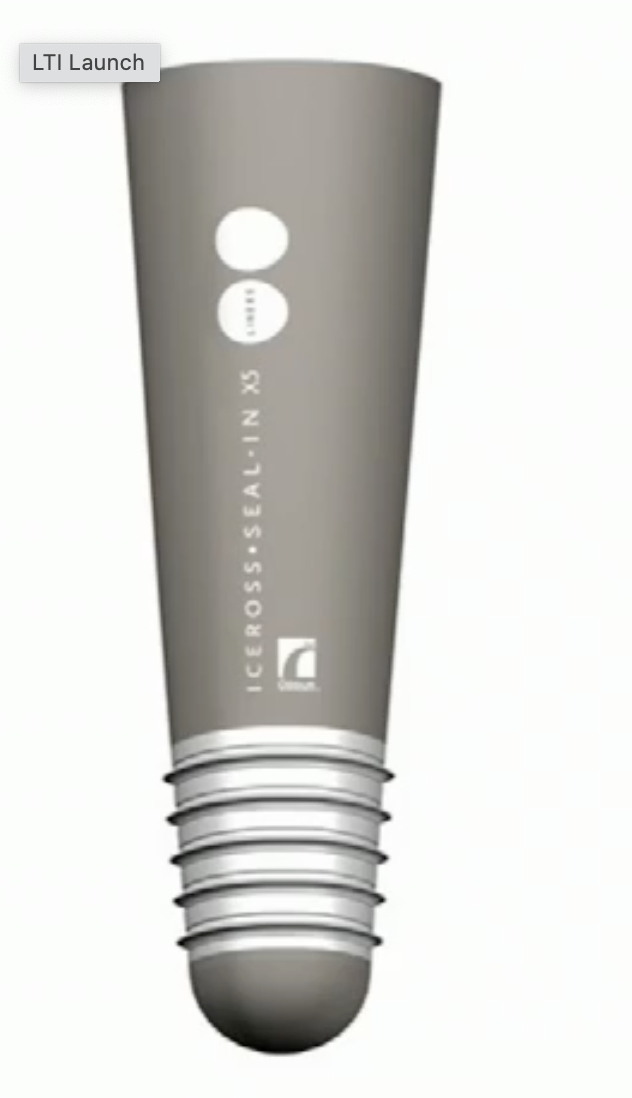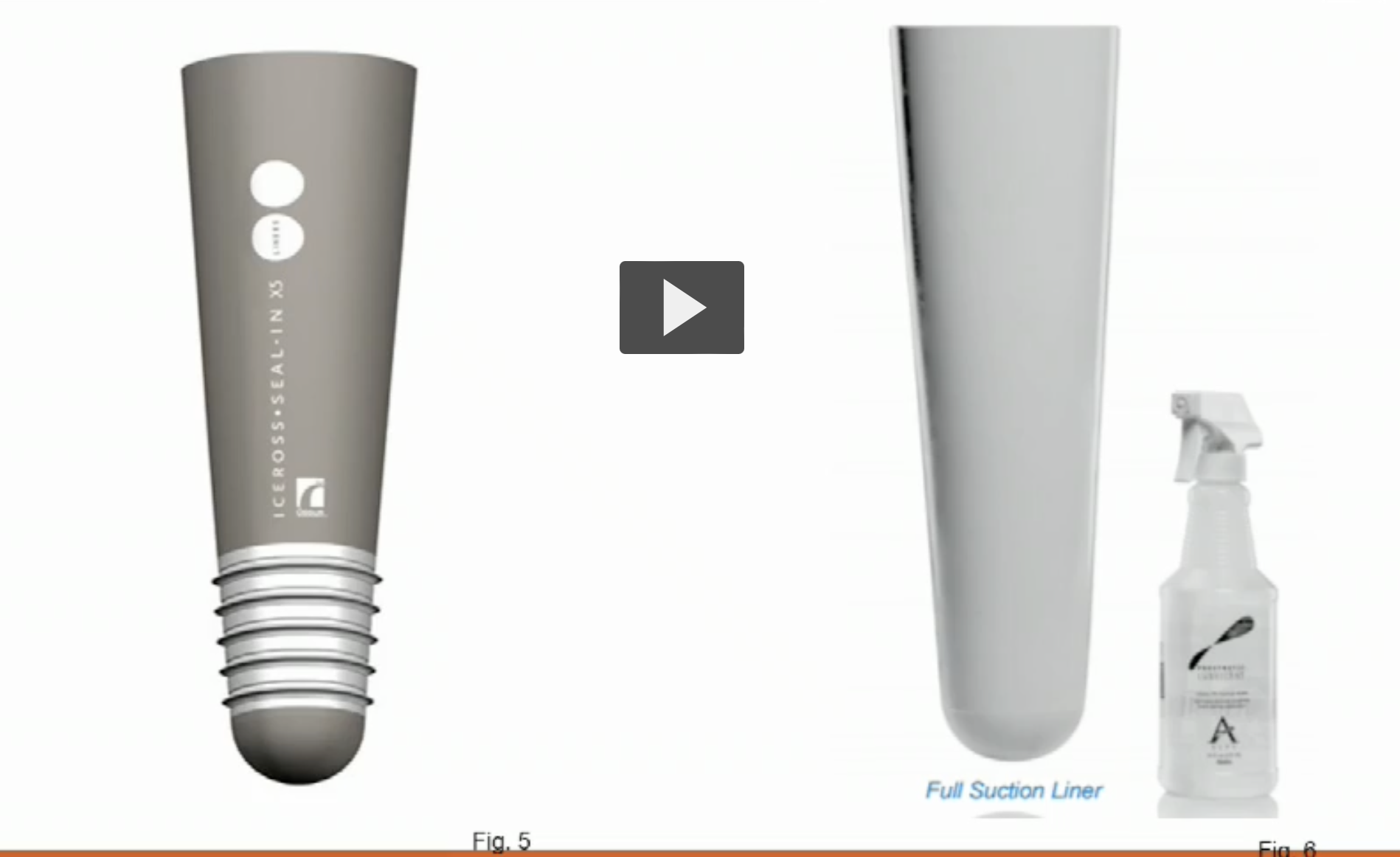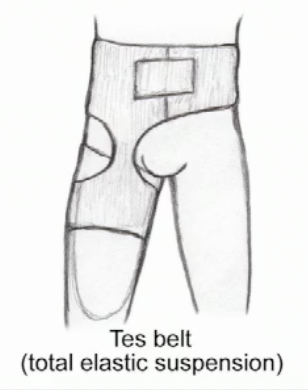Suspension
1/36
There's no tags or description
Looks like no tags are added yet.
Name | Mastery | Learn | Test | Matching | Spaced | Call with Kai |
|---|
No analytics yet
Send a link to your students to track their progress
37 Terms
What 3 things make transfemoral suspension unique?
increased soft tissue (more than transtibial)
minimal bony anatomy
general residual limb shape (cylindrical/conical)
What is done to a hypobaric liner prior to donning in socket?
applying lubricant to silicone bands
What is used in conjunction with a seal-in liner?
elevated vacuum
What is the major advantage of a skin fit suction suspension method?
increased proprioception
What are the disadvantages for a skin fit suction suspension method?
can’t accommodate volume changes
difficult to don
can’t absorb shear forces on limb (not as much padding compared to having a gel liner)
pistoning can lead to what?
skin irritation
distal end edema
gait deviations
discomfort
loss of control
What is the gold standard for transfemoral suspension?
there is none
In order to utilize a skin fit suction suspension method, what adjustment must be made to the socket?
snug fit on proximal brim
Explain Sock and Valve suction method
provides particle suction suspension where user wears a prosthetic sock
must utilize an additional suspension method
What is the difference between Sock & Valve Suction and Skin Fit Suction?
Sock & Valve has user wear a prosthetic sock and uses valve to create partial suction
need to have another suspension method
Skin Fit has skin between the socket to create maximum suction from valve
no need for another suspension method
Explain the Hypobaric Suspension method
fabric liner with silicone bands
suspension in areas with bands

What is the difference between a Hypobaric Suction Liner and a Full Suction Liner?
FSS has suction suspension everywhere compared to Hypobaric Suction Liner has suspension only where there are the rings

What type of patients would benefit from suction suspension?
patients with long residual limbs (more surface area=better suction)
patients with good balance (standing into socket will help donning)
patients with good skin integrity (suction may be aggressive on skin)
patients with good hand dexterity
patients with mature limb
Why would a patient with a mature limb benefit from a skin fit suction suspension method over a new amputee?
new amputees are prone to volume fluctuations, and the suspension would be greatly affected if the size of the limb changes
(prosthesis would fall right off)
A pin lock and a lanyard would be best for what types of amputee
pin-lock: transtib
lanyard: transfem
What are the advantages of a roll on sleeve/gel liner?
can accomodate volume changes (you can add padding/socks and it won’t affect suspension)
can be donned while seated
can provide skin protection (thick sleeve)
What kind of patient would benefit from a roll on sleeve/gel liner
new amputee (volume fluctuations)
patient with bad skin integrity (thick sleeves will offer protection
geriatric patient (they don’t have to stand up)
What patient would not be best for a roll on sleeve/gel liner?
patient with long residual limb (can be difficult to don
higher functioning patient
patient with upper extremity debilitation (unable to roll sleeve on)
How does an elevated vacuum operate?
through either pf/df on the foot components
What category do Silesian Belts fall under in terms of manufacturing?
custom
How does a Silesian Belt offer suspension?
by pulling prosthesis superiorly and medially
Which suspension method is the OTS version of the Silesian Belt?
TES Belt

What are the advantages of a Silesian/TES Belt
very easy to don (if they can put a belt on, they can use this)
very adjustable (velcro straps/holes in belt
What are some disadvantages of a Silesian/TES Belt?
increase bulk compared to other suspension methods
not as great of a suspension compared to others
What are some indications for a Silesian/TES Belt?
patients that can’t tolerate suction
patients that need increased auxiliary suspension (secondary suspension)
patients that need rotational control
gait diagnostic control (since the belt pulls the socket medially, it can help with a deviation like lateral thrust)
Where does the Pelvic band span to?
from ASIS to 2” lateral to spinous process
What is the exact location of the hip joint?
1” superior, 1/2” anterior to GT
Where should the waist belt/pelvic band be positioned?
on the actual waist (not on ASIS)
What are the advantages of a Hip Joint, Pelvic Band, and Waist Belt
easy to don
maximum ML support
What are the disadvantages of a Hip Joint, Pelvic Band, and Waist Belt?
increase weight
uncomfortable sitting
bulky
What are the indications for a Hip Joint, Pelvic Band, and Waist Belt?
patient that needs more ML control (weak hip abductors)
short limb
Which type of suction suspension method is easier to don?
Partial suction bc skin fit suction has snug ft on proximal brim